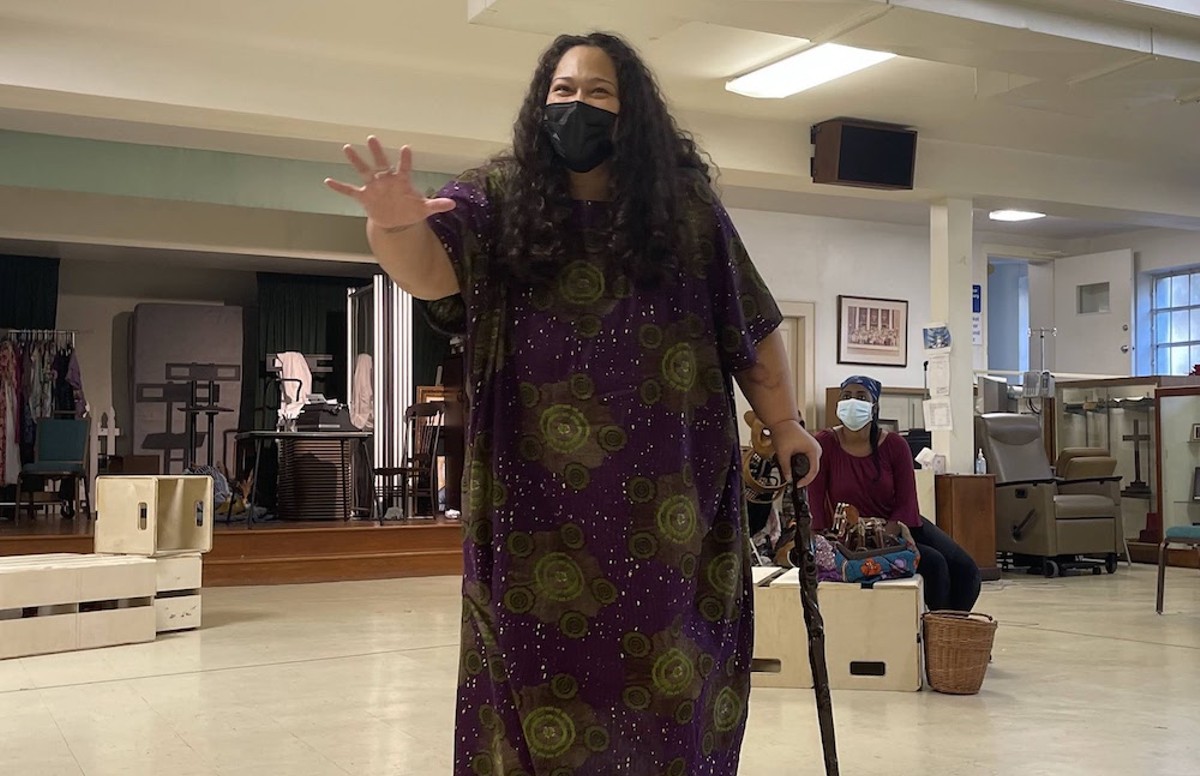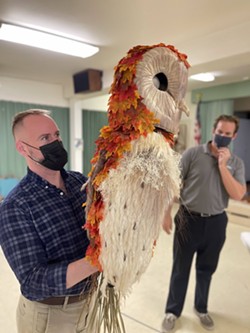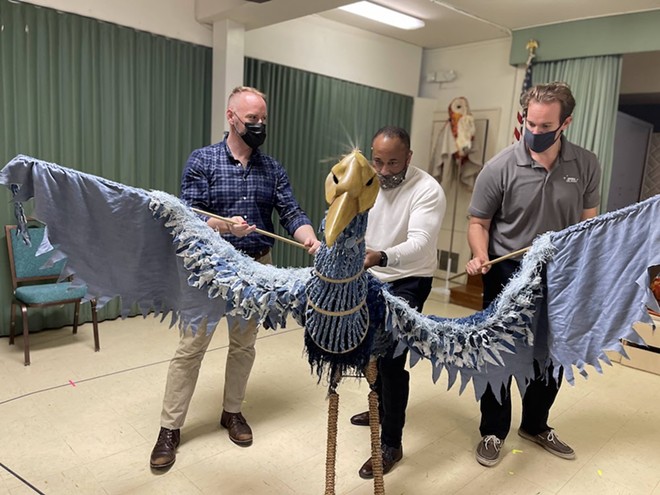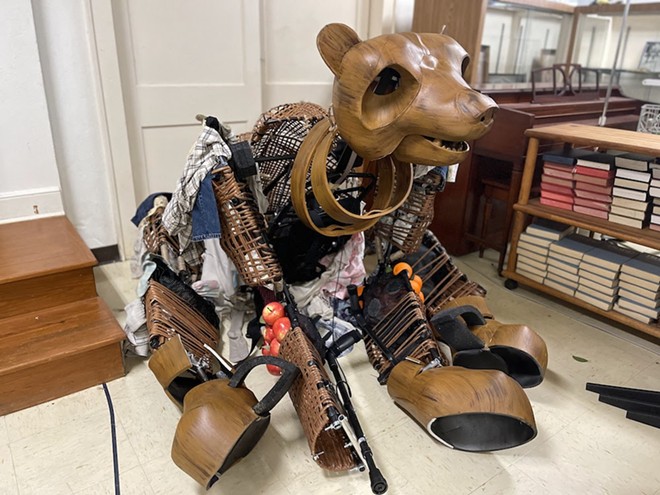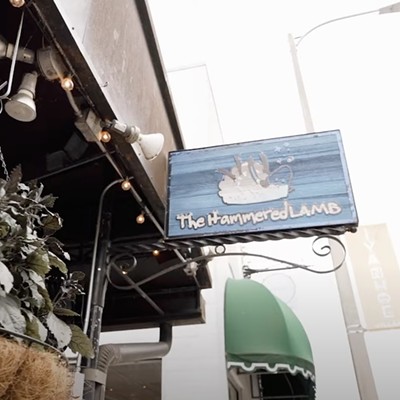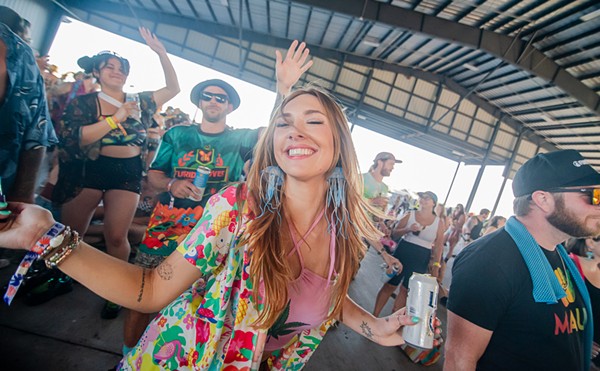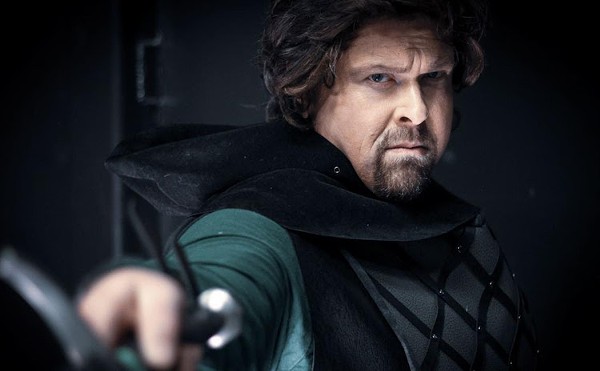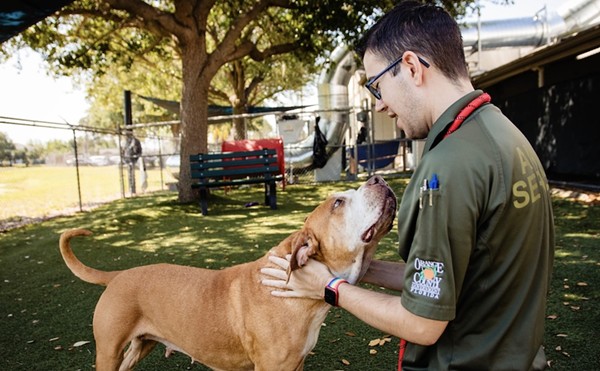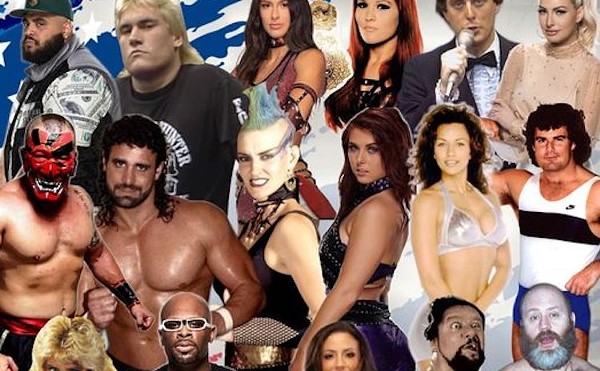Opera may not have the same cultural cachet in today's social media era as it did during the Age of Enlightenment, but anyone who says the art form is ailing in Central Florida ought to get enlightened, because just last week I enjoyed three radically different operatic experiences within a span of only 50 hours. It all started on Wednesday when I had the surreal experience of seeing live opera on the high seas, watching a professional (albeit abbreviated) production of Puccini's La Boheme while cruising [this time on my own dime] aboard the MSC Meraviglia, which is currently sailing out of Port Canaveral.
At the other extreme, on Friday night I attended the Florida premieres of composer Nathan Felix's contemporary chamber operas Ribas-Dominicci and The War Bride at Timucua. Telling the true stories of a Reagan-era Air Force pilot shot down over Libya and of Felix's own grandmother's journey from London to Laredo, this pair of deeply personal works packed an epic amount of heavenly harmonies (exquisitely amplified by the venue's digital ambience) into their petite running times.
Sandwiched smack in-between — both aesthetically and chronologically — came Opera Orlando's The Secret River, whose rehearsal I attended last Thursday afternoon ahead of its world premiere at the Dr. Phillips Center on Dec. 17-19. Opera Orlando's first-ever commissioned work is based on the 1955 children's novel by Pulitzer Prize-winning Central Floridian author Marjorie Kinnan Rawlings (embodied onstage by Emily Pulley) and staged by director Dennis Whitehead Darling with Everett McCorvey conducting the Orlando Philharmonic Orchestra. It aims to expand opera's appeal beyond its stereotypical audience through the fantastical, family-friendly fable of Calpurnia (soprano Kyaunnee Richardson), a Black girl who saves her parents (NaGuanda Nobles, Geoffrey Peterson) and rural community from ecological disaster with the aid of a wise woman (Kimberly Milton), some animal friends (designed by MicheLee Puppets) and the power of her own poetic imagination.
I also sat down with Secret River's librettist, Mark Campbell — a Pulitzer Prize and Grammy Award winner himself who has previously written operas about Steve Jobs, Stonewall and The Shining — for an educational conversation about his latest work. Here's an edited sampling of his wide-ranging comments on adapting a revered classic for the stage, collaborating with composer (and UCF professor) Stella Sung and the future of opera itself.
You've been presenting work in Orlando since co-organizing a benefit after the Pulse tragedy. What keeps you coming back?
I have major connections with opera companies around the country [and] to me, it is really incredible to watch these opera companies producing and commissioning new opera, contemporary opera. Because it's a little bit harder sell to audiences who are not exposed as much as audiences in New York or Los Angeles might be to new work. So part of my mission as a librettist is to help general directors and help opera companies break down all these barriers about what new opera is and what it should be. A lot of people, their first perceptions of opera are that it's an elitist art form, that it's really expensive.
It's a pleasure to be in Orlando because I know that Gabriel [Preisser, general director of Opera Orlando] and Grant [Preisser, artistic director of Opera Orlando], and also our whole [company], we all want to break down these barriers that people have about opera. Because frankly, I'm tired of seeing myself in the audience. I'm tired of seeing old white men in the audience; I want to see a younger crowd, and I want to see a more diverse crowd. And that's one of the reasons that Secret River is an important opera, an important story to tell.
As a white man working with a majority female and/or BIPOC cast and crew, how did you ensure authenticity in adapting this story?
By just listening to [Rawlings] and reading her story, and rereading it and finding an opera in it, I've remained true to it, I think. And we've had many discussions about potential racial issues in this story, and I defer to our director and conductor, who are Black, and Stella [Sung], who is a woman of color.
We're all very, very sensitive about it. [In the opera] Marjorie Kinnan Rawlings [who was white] learns as much from Calpurnia ... as Calpurnia does from Marjorie Kinnan Rawlings. It was very important to me that she wasn't just a little girl who has a magical experience.
Which came first, your words or Stella Sung's music?
The libretto always comes first, and a lot of people don't know that. The composers demand it; they need the specificity of a character to write a musical theme. For example, in this case, I finished the libretto and gave it to Stella. That doesn't mean "OK, see you opening night." It means that's the first draft. ... That's what the whole development process is about. And that's why I love having a director early on, having a conductor early on, so that everyone is aware that we're telling the same story.
How do you define the difference between contemporary opera and sung-through musical theater?
[Late composer Stephen Sondheim] said, "When it's performed in a musical theater house, it's a musical; when it's performed in an opera house, it's an opera." That's the difference. One thing that I think that has been happening in American opera that I'm very pleased with is that it's stealing from American musical theater. We're seeing show business instead of some kind of artificial pretentious art form. I think we're trying to bring it back to being a populist art form, and if that means stealing from musical theater — if that means having tunes, for God's sake, if that means even having comedy — we all win. It means the opera houses will be filled. If we go the other direction, the opera houses will be empty.

